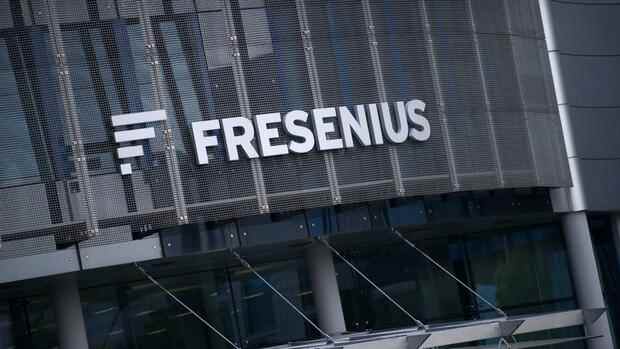After making progress on its cost and efficiency program, the company plans to keep costs down.
(Photo: dpa)
Frankfurt After two years of being affected by the corona pandemic, the Fresenius health care group is still expecting negative effects from the epidemic this year. In the current year, the Dax group – calculated without currency and special effects – wants to increase its sales by a mid-single-digit percentage and increase its consolidated earnings by a low-single-digit percentage. The company announced this on Tuesday.
Fresenius would thus increase its profit less than last year, when net income rose by five percent. The prospects for medium-term targets are also more subdued. The company now expects to only achieve the lower end of the stated sales and earnings targets.
Investors reacted disappointed to the new outlook on Tuesday. At the start of trading, the Fresenius share was down more than five percent at EUR 34.45.
The Group reports progress with the initiated efficiency programs. Fresenius now plans to achieve savings of at least EUR 150 million per year by 2023. Originally, more than 100 million euros were targeted.
Top jobs of the day
Find the best jobs now and
be notified by email.
The dialysis subsidiary Fresenius Medical Care (FMC) announced in November that it would be cutting 5,000 jobs worldwide and restructuring its business model into two global segments. The annual costs are to be reduced by 500 million euros by 2025. The conversion to the new operating model should be achieved by 2023. Between 500 and 750 jobs are to be cut in Germany.
With four business segments, Fresenius is broadly positioned in the healthcare market. The largest subsidiary is the dialysis group Fresenius Medical Care, which is also listed in the Dax, followed by the hospital group Helios, the medicines division Kabi and the smallest subsidiary, Vamed, which specializes in hospital construction and operation.
FMC’s consolidated profit has plummeted
In the past year, the subsidiary FMC in particular had burdened the development at Fresenius. Because of the disproportionately high mortality rate among dialysis patients, FMC’s consolidated profit fell by 25 percent. The other divisions were able to partially compensate for the negative development at FMC. The Kabi medicines division in particular, which benefited from unexpectedly high demand due to Covid-19 in the fourth quarter in particular, made a major contribution to this.
Fresenius does not expect this effect to be repeated at Kabi this year and assumes a decline in the operating result for this business area. Nevertheless, Fresenius believes that the division, which has been managed by former Siemens manager Michael Sen since last April, has strong growth and development opportunities and wants to invest there as a priority.
In addition, CEO Stephan Sturm wants to open up “new sources of capital” for Fresenius: For larger growth steps, especially at the clinic subsidiary Helios and the service division Vamed, Fresenius is ready to open up to external equity at the level of the divisions. A capital increase of the holding company is not necessary.
The Fresenius share has lost around half of its value in the past five years. Last year, Sturm also raised the possibility of reviewing the group’s structure in order to boost the company’s valuation. Many analysts and investors would welcome a spin-off of the dialysis subsidiary FMC, also to reduce the complexity of the company.
However, Fresenius is sticking to its broad structure for the time being: “Fresenius remains a diversified healthcare group with a sharper profile, which is involved in various attractive areas of medicine and healthcare,” Sturm is quoted as saying in the company announcement.
Fresenius dividend to increase
Fresenius is offering shareholders a five percent higher dividend of 92 cents. However, an optional dividend is to be proposed. The shareholders should be able to exchange the distribution for shares in the company. If the shareholders accept that, it would mean a dilution of the shares. The anchor shareholder Else-Kröner-Fresenius-Foundation has announced that it wants to participate fully in the optional dividend, Fresenius said.
In the past fiscal year 2021, Fresenius grew by three percent to 37.5 billion euros in sales. Due to the corona-related burdens at FMC, operating profit (before special items) fell by eight percent to almost 4.3 billion euros. Consolidated profit (before special items) increased by four percent to 1.867 billion euros.
The Group’s net financial liabilities increased by one percent to EUR 24.4 billion. As a result, the debt ratio rose to around 3.5 times earnings before interest, taxes, depreciation and amortization. The increase is due to the pandemic-related decline in Ebitda.
More: Investors are hoping for a signal that Fresenius will split up.
